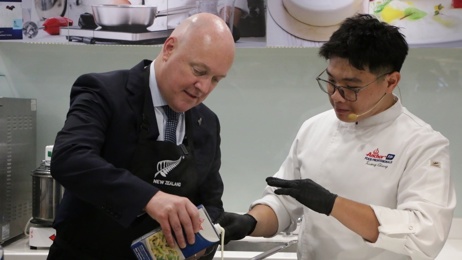
In today's fast-paced world, the saying "there is no health without mental health" holds truer than ever before. The significance of mental well-being cannot be overstated, and it's time we shift our focus towards preventing mental health distress from taking root in the first place. One powerful avenue to achieve this is through comprehensive mental health education in primary schools, a global initiative that demands our immediate attention.
Imagine a world where children not only learn math, science, and history but also acquire the emotional intelligence and coping skills necessary to navigate the complexities of life. It's a world where mental health awareness is instilled from an early age, creating a foundation for a resilient and emotionally balanced generation. Such a world is not only possible but essential.
Collaborating with mental health professionals, educators, and child psychologists, we can develop age-appropriate and evidence-based curricula that introduce children to the concept of mental health in an engaging and fun manner. One vital aspect of this curriculum is teaching cognitive-behavioural techniques (CBT), which can equip children with valuable tools to manage their emotions, build positive mental health, and prevent mental disorders.
My journey into the realm of mental health education began when I realized that my own daughter's behavioural problems were not a reflection of my parenting skills but possibly a manifestation of a mental disorder. Her teacher's observations were concerning - hiding under tables, difficulty concentrating, tearfulness, constant worry, and fear that hindered her from socializing. These were just the visible signs; at home, I noticed sleep disturbances, frequent nightmares, daily tummy aches, and an unsettling clinginess.
Despite seeking counselling for four years, I, as a parent, was never informed about anxiety or given strategies to support her at home. I felt disempowered, with costly counselling sessions being the only beacon of hope. By the age of 14, my daughter had resorted to using drugs to numb her emotional pain, and at 15, she embarked on a two-year journey of self-harm during the Covid-19 lockdown. The anguish of watching my child suffer in this manner is indescribable.
This personal experience illuminated the pressing need for proactive solutions. Rather than relying solely on ambulances waiting at the bottom of the cliff, we must invest in strong fences to prevent our children from falling in the first place.
In New Zealand, as in many other parts of the world, the majority of mental health funding is allocated to support those already impacted by trauma and stress. While these efforts are undoubtedly crucial, they do not address the root of the issue. We need a paradigm shift towards preventative education, equipping children, their families, and teachers with the knowledge and skills to manage emotions, build resilience, and foster positive mental health proactively.
The World Health Organization (WHO) recognizes the importance of promoting mental well-being and preventing mental disorders. The University of Auckland Commentary highlights the urgency of better understanding the determinants of youth mental health, emphasizing the development of emotional self-regulation in childhood as a core factor.
Cognitive-Behavioral Therapy (CBT) is a powerful tool in preventing mental disorders in children. The "Think and Be Me" program is an innovative initiative that has successfully introduced engaging and age-appropriate cognitive-behavioral techniques (CBT) to schoolchildren. Through fun and interactive video lessons, it covers essential aspects of CBT, including identifying and regulating emotions, understanding thought patterns, and developing coping strategies. This program collaborates with schools, provides teacher training, and offers additional mental health resources, ensuring a comprehensive approach to mental health education. Continuous evaluation and adaptation are key to its effectiveness and long-term sustainability.
Communicating complex concepts through fun characters and catchy phrases, it enables students, families and schools to develop a common understanding and language, to look after their own mental wellbeing and that of others.
By equipping children with these invaluable skills and creating strong support systems, CBT reduces the risk of developing mental health issues and promotes long-term emotional well-being.
Together with a team of Think and Be Me videos and lesson plans are an effective way to teach primary age children about Cognitive-Behavioral Therapy (CBT) and promote mental well-being. They engage children through multimedia, provide age-appropriate content, offer practical skills, and encourage early intervention in a relatable and accessible manner. This approach helps children develop emotional self-regulation skills and reduces the stigma around mental health, laying the groundwork for a healthier future.
In the year ahead, myself and Rotary members across the globe will focus their efforts on advocating for mental health, engaging in dialogue, and initiating projects that emphasise the significance of community, mutual support, and self-care. I extend an invitation to you to join these efforts, to recognise mental health concerns within your own communities, and to spark conversations, because your contributions will catalyse meaningful change within your own society.
It's time to prioritize mental health in our schools and communities. Let's invest in our children's futures by providing them with the tools they need not just to survive but to thrive emotionally. Together, we can create a world where mental health is nurtured from an early age, ensuring a brighter and healthier future for generations to come.
Cat Levine is a member of the Maungakiekie Rotary Club and mental wellbeing educator.
Take your Radio, Podcasts and Music with you









